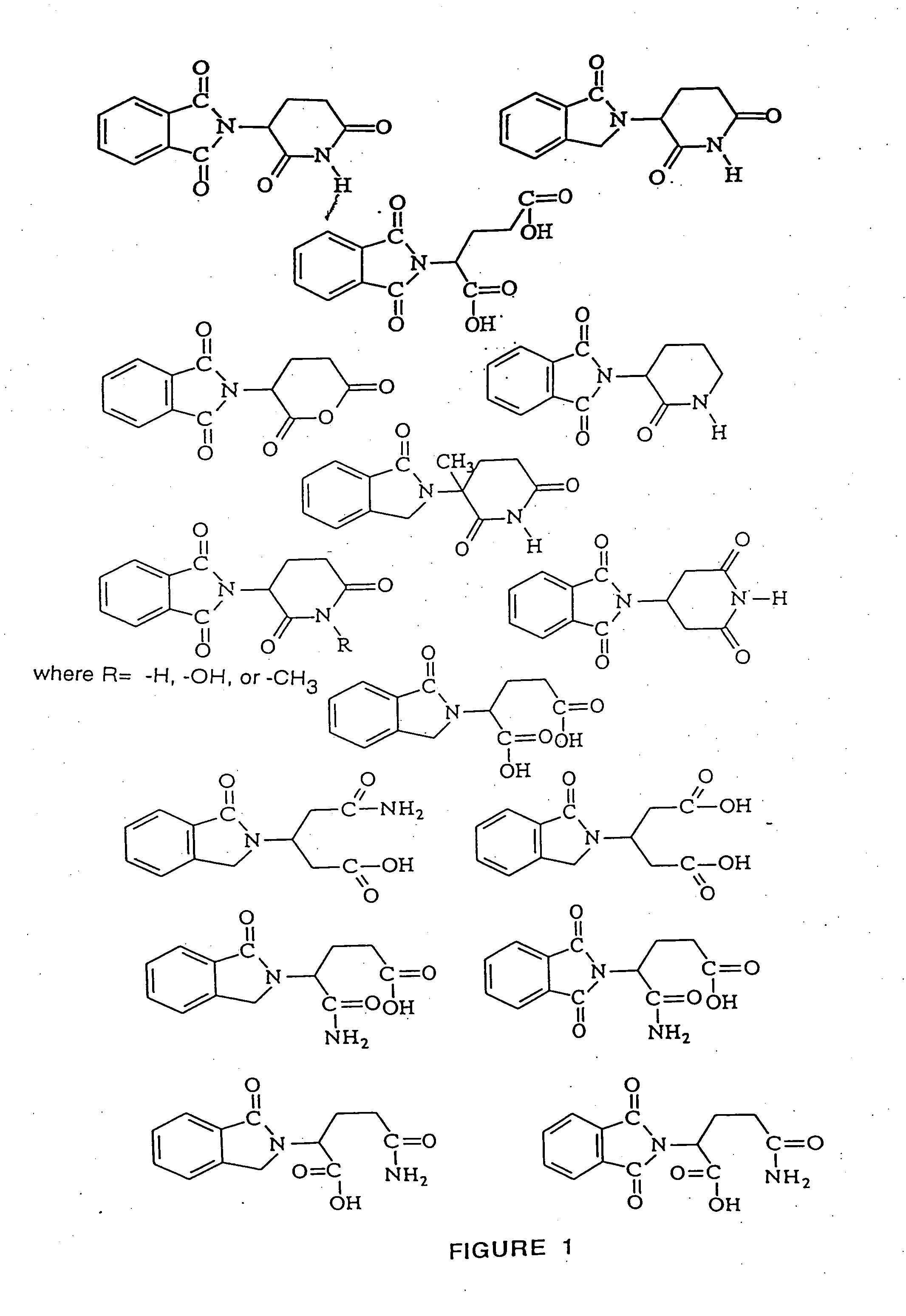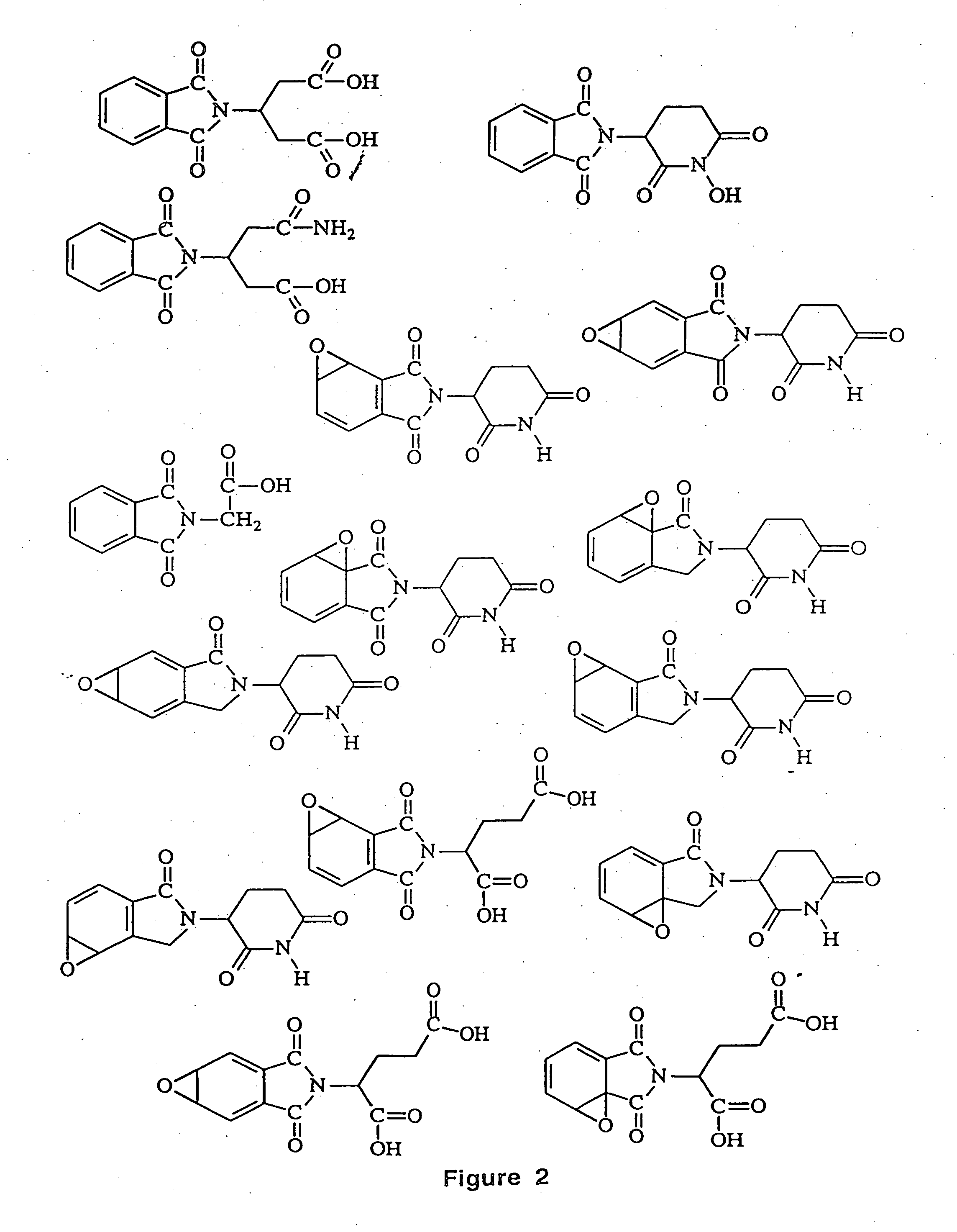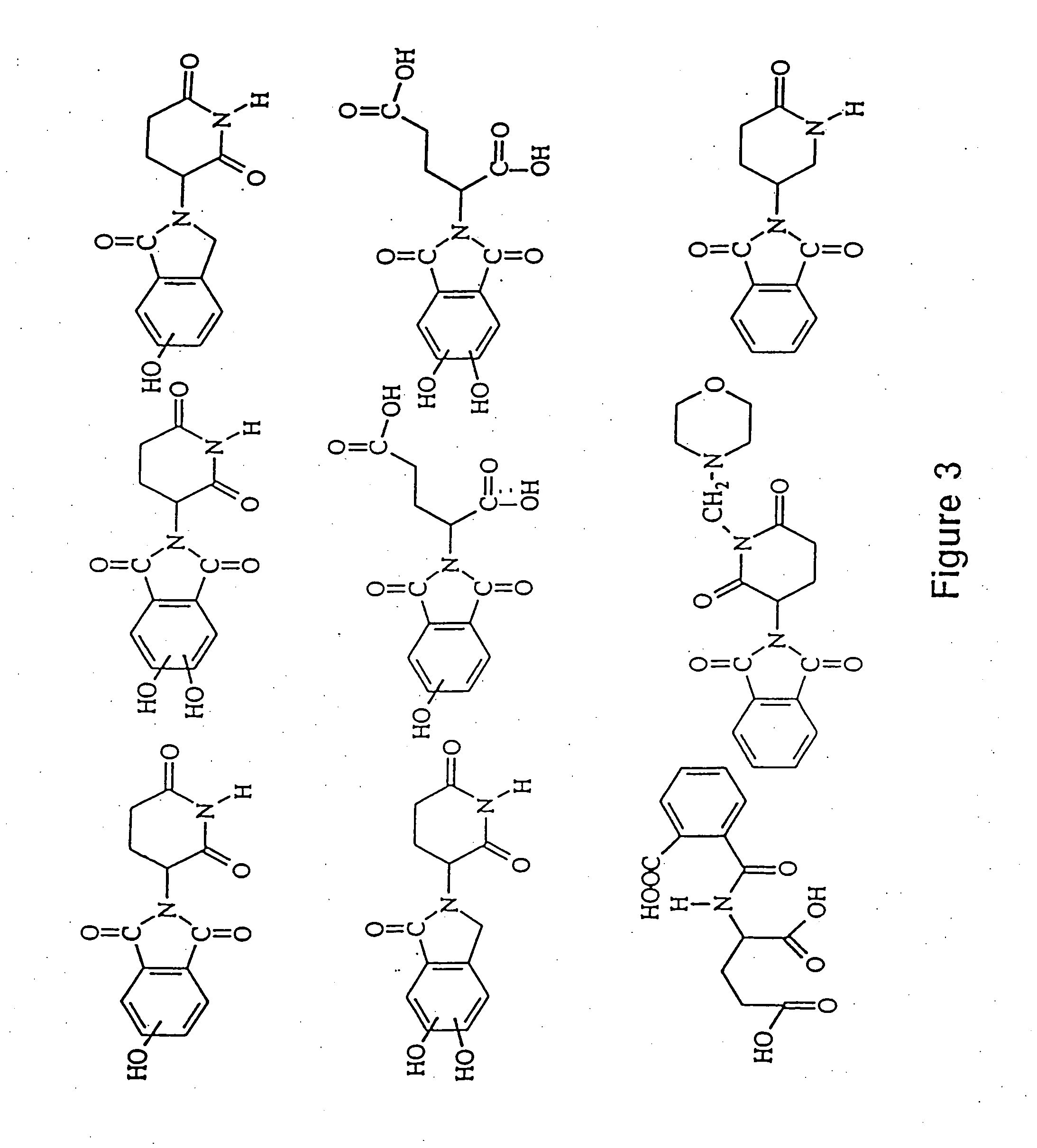Methods and Compositions for inhibition of angiogenesis
a technology of angiogenesis and compositions, applied in the direction of drug compositions, immunological disorders, cardiovascular disorders, etc., can solve the problems of high mortality rate, systemic forms of hemangiomas, hemangiomatoses, tumors that progress to large cavernous and infiltrative forms, etc., to inhibit unwanted angiogenesis, inhibit angiogenesis, and facilitate administration
- Summary
- Abstract
- Description
- Claims
- Application Information
AI Technical Summary
Benefits of technology
Problems solved by technology
Method used
Image
Examples
example i
[0120] The chick embryo chorioallantoic membrane assay described by Crum et al., Science 230:1375 et seq. (1985), is used to identify compounds that do not require further metabolic conversion. See also, U.S. Pat. No. 5,001,116, hereby incorporated by reference, which describes the CAM assay at col. 7 of the patent. Briefly, fertilized chick embryos were removed from their shell on day 3 or 4, and a methylcellulose disc containing the compound was implanted on the chorioallantoic membrane. The embryos were examined 48 hours later and, if a clear avascular zone appeared around the methylcellulose disc, the diameter of that zone was measured.
example ii
Rabbit Cornea Angiogenesis Assay
[0121] Pellets for implantation into rabbit corneas were made by mixing 110 μl of saline containing 12 μg of recombinant bFGF (Takeda Pharmaceuticals-Japan) with 40 mg of sucralfate (Bukh Meditec-Denmark); this suspension was added to 80 μg of 12% hydron (Interferon Sciences) in ethanol. 10 μl aliquots of this mixture was then pipetted onto Teflon pegs and allowed to dry producing approximately 17 pellets. A pellet was implanted into corneal micropockets of each eye of an anesthetized female New Zealand white rabbit, 2 mm from the limbus followed by topical application of erythromycin ointment onto the surface of the cornea. The animals were fed daily from 2 days post-implantation by gastric lavage with either drug suspended in 0.5% carboxymethyl cellulose or 0.5% carboxymethyl cellulose alone. Thalidomide was purchased from Andrulus Pharmaceutical (Maryland) and the EM-12 and Supidimide were kindly provided by Grunenthal GMBH (Germany). The animals...
example iii
Inhibition of bFGF Induced Corneal Neovascularization by Thalidomide and Related Analog Expressed as Percent of Median Control on Day 8
[0123] Pellets containing bFGF and sucralfate were implanted into micropockets of both corneas of rabbits according to Example II. Vessel ingrowth into clear cornea from the limbus was first noted on day 2 and treatments (200 mg / kg orally) were begun on this day. The area of corneal neovascularization was measured from day 4 through day 12. Day 8 measurements were used for comparison between groups. No regression of vessels and near maximal neovascularization was seen at this time point. Statistical analysis was performed with ANOVA with ranked data to account for interexperimental variation and to guard against a non-normal distribution of data (i.e. outliers) by utilizing a nonparametric method.
[0124] The compounds tested were as follows:
[0125] Treatment with a dose of (200 mg / kg) of thalidomide resulted in an inhibition of the area of vascula...
PUM
| Property | Measurement | Unit |
|---|---|---|
| particle size | aaaaa | aaaaa |
| microvessel density | aaaaa | aaaaa |
| concentration | aaaaa | aaaaa |
Abstract
Description
Claims
Application Information
 Login to View More
Login to View More - R&D
- Intellectual Property
- Life Sciences
- Materials
- Tech Scout
- Unparalleled Data Quality
- Higher Quality Content
- 60% Fewer Hallucinations
Browse by: Latest US Patents, China's latest patents, Technical Efficacy Thesaurus, Application Domain, Technology Topic, Popular Technical Reports.
© 2025 PatSnap. All rights reserved.Legal|Privacy policy|Modern Slavery Act Transparency Statement|Sitemap|About US| Contact US: help@patsnap.com



